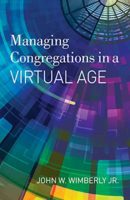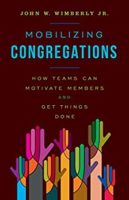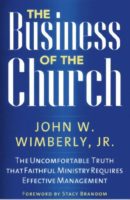Part of consulting is Emergency Room work. When a congregation is bleeding, the bleeding needs to stop before anyone can step back and think big picture. However, in our fix-it-quick, put-a-Band-Aid-on-it culture, another part of consulting is making sure congregations slow down so they can prayerfully reflect upon and discern God’s will for their ministry.
In her excellent book, Pursuing God’s Will Together: A Discernment Practice for Leadership Groups, Ruth Haley Barton suggests that a key to discerning God’s will is to reach a state of “indifference.” She contends that to hear God, we need to stop listening solely to ourselves and the world. God needs us to become “indifferent” to the many worldly and ecclesiastical agendas we bring into a planning process so that, individually and collectively, we can listen for God’s agenda. Striving for a spiritual state of indifference is essential if we are to be truly open to the new things to which God is calling us.
Ruth’s advice is challenging, to say the least. As consultants, we get a lot of calls from potential clients saying, in effect, “Here is what we need you to do” or “Here is our problem.” We don’t field a lot of calls in which someone says, “We need you to help us get rid of our pre-set agendas so we can reach a state of spiritual indifference.” Nonetheless, slow down and discern we must if our planning it to be effective long-term.
I am drawn to the idea of discernment as part of a planning process because it can help us to name the agendas that drive our ministries. Our agendas are usually positive, at least, in the abstract. For example, most of us in ministry feel an agenda to grow our congregations, provide quality worship, sensitive, consistent pastoral care, and engaging programs. Such agendas are not contrary to God’s will. But if they remain unexamined, will they always guide us where God would have us go?
Three months after I arrived at Western Presbyterian Church in 1983 to begin what became a thirty year pastorate, I was approached by a community activist who made me an exciting offer. He said that he had about $5,000 to be used to start a feeding program for the homeless who lived west of the White House. “Are you interested,” he asked.
The possibility of a major feeding ministry filled me with excitement. But I wasn’t sure how our tiny congregation would feel about it. While a feeding program was on my agenda, was it also the congregation’s agenda or God’s agenda? Over the next six months, we engaged in a lot of Bible study around issues related to the homeless and hungry; we prayed about what we should do; we had discussions among our leadership; I preached on the subject. Finally, we had a congregational meeting to make a decision.
At the meeting, people gave pro and con arguments that reflected the various agendas that drive most ministries—some people worried about the poor, others worried about the building, yet other folks worried about liability issues. Then Forrest Agnew stood up. Forrest was a quiet, retired man from Mississippi who had been a pillar of the congregation for four decades. When he spoke, people listened.
Forrest said, “I have been thinking and praying about this feeding program possibility. As President of the Trustees, I have to say (no offense, John) that I think it is one of the worst ideas I have ever heard. Our building is old. We have the original plumbing, heating and electrical systems from 1930. I am not sure the building will stand up to a daily feeding program. But I have also listened to John’s sermons, attended Bible classes on the subject, and prayed daily about what we should do. Even though this is a really bad idea from a building perspective, I don’t think the Bible leaves us much choice about our decision. The Good Book says we need to feed the hungry and give shelter to the homeless. So I will vote for the program.”
Forrest went through his own personal process of discernment. He emptied himself of all of his worldly agendas and embraced the agendas laid out in Scripture. That day, his words filled my eyes with tears. They fill my eyes with tears as I write them today.
In 1983, I didn’t know what a discernment process was. But by good fortune, blind luck or divine intervention, we engaged in one. The personal discernment processes of faithful servants such as Forrest Agnew plus our collective process of discernment as a congregation led to the creation of a feeding program that thirty years later still serves about 2000 meals weekly.
As we plan, strategically and intentionally, we need to insure that our deliberations are open to God moving us in surprising ways; moving us to places that are contrary to where reason alone would lead us. Do our planning processes include an intentional openness to being surprised; to being quiet and listening for God’s will? Even if we are ready to plan, may we stop, become quiet, listen, reflect and discern God’s will before we begin.
John Wimberly is an experienced pastor and consultant. As a consultant, he has worked with congregations and judicatories on strategic planning, staff designs for the 21st century, and congregational growth as well as financial and administrative management. He has MBA, MDiv, and PhD (theology) degrees. His books focus on effective management and leadership. John believes congregations can have a bright future!



